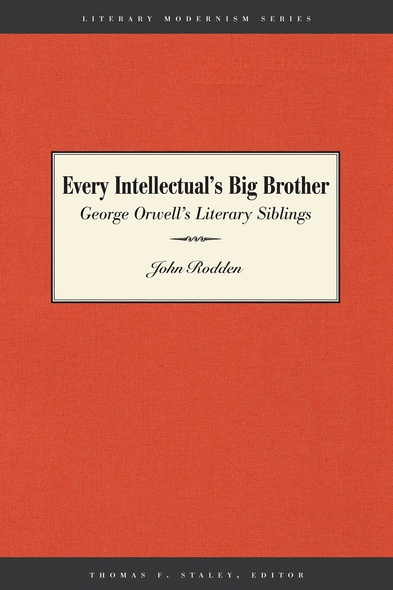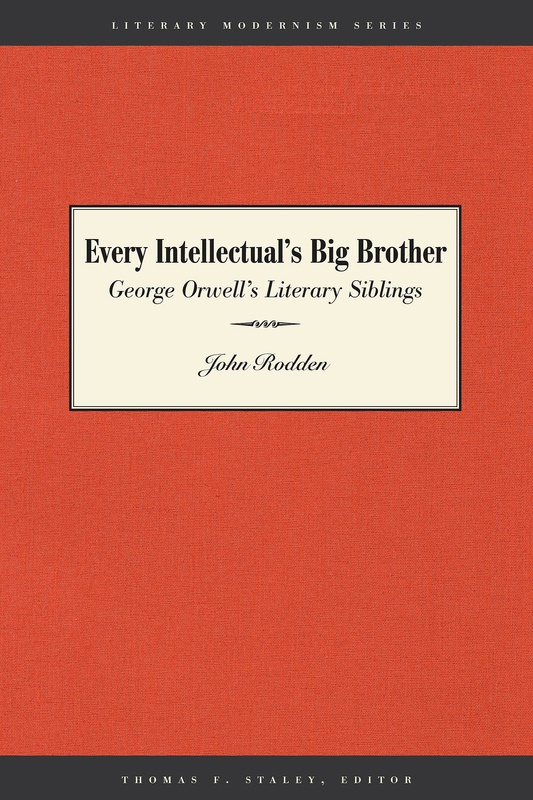Every Intellectual's Big Brother
George Orwell's Literary Siblings
George Orwell has been embraced, adopted, and co-opted by everyone from the far left to the neoconservatives. Each succeeding generation of Anglo-American intellectuals has felt compelled to engage the life, work, and cultural afterlife of Orwell, who is considered by many to have been the foremost political writer of the twentieth century. Every Intellectual's Big Brother explores the ways in which numerous disparate groups, Orwell's intellectual "siblings," have adapted their views of Orwell to fit their own agendas and how in doing so they have changed our perceptions of Orwell himself. By examining the politics of literary reception as a dimension of cultural history, John Rodden gives us a better understanding of Orwell's unique and enduring role in Anglo-American intellectual life.
In Part One, Rodden opens the book with a section titled "Their Orwell, Left and Right," which focuses on Orwell's reception by several important literary circles of the latter half of the twentieth century. Beginning with Orwell's own contemporaries, Rodden addresses the ways various intellectual groups of the 1950s responded to Orwell. Rodden then moves on in Part Two to what he calls the "Orwell Confraternity Today," those contemporary intellectuals who have, in various ways, identified themselves with or reacted against Orwell. The author concludes by examining how Orwell's status as an object of admiration and detraction has complicated the way in which he has been perceived by readers since his death.
Anybody who toils in the rewarding vineyard of Orwell studies will continually find, more to his pleasure than his discomfort, that John Rodden has been there before him, both tilling the soil and refreshing it.
A first-class addition to the growing literature on Orwell’s literary significance. Rodden brilliantly demonstrates how Orwell influenced such disparate writers as Irving Howe, John Wain, Kingsley Martin, and Norman Podhoretz. His chapters on Howe and Wain alone are by themselves a major contribution to our understanding of the significance of these two important writers. The book is also an excellent overview of the intellectual currents in the Anglo-American literary world during the last half century. Both the specialist in Orwell studies and the educated general reader will find new insights into the impact that Orwell’s writings have had.
John Rodden, of Austin, Texas, has taught at the University of Virginia and the University of Texas at Austin.
- Acknowledgments
- Prologue. "Orwell" Still Lives
- Introduction. George Orwell and His Intellectual Progeny
- Part One. Their Orwell, Left and Right
- Chapter One. "Not One of Us?" Orwell and the London Left of the 1930s and '40s
- Chapter Two. "A Moral Genius": Orwell and the Movement Writers of the 1950s
- Chapter Three. "London Letter" from a Family Cousin: The New York Intellectuals' Adoption of Orwell
- Chapter Four. "A Leftist by Accident?": Orwell and the American Cultural Conservatives
- Chapter Five. Does Orwell Matter? Between Fraternity and Fratricide at the Nation
- Part Two. Orwell's Literary Siblings Today
- Chapter Six. Iraq, the Internet, and "the Big O" in 2003: A Centennial Report
- Chapter Seven. The Man within the Writings
- Chapter Eight. Unlessons from My Intellectual Big Brother
- Epilogue. On the Ethics of Literary Reputation
- Notes
- Bibliography
- Index





